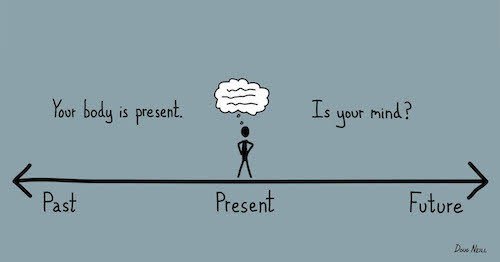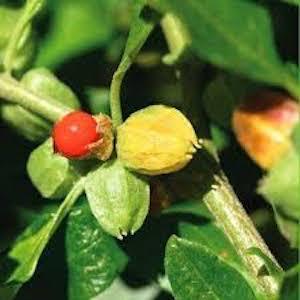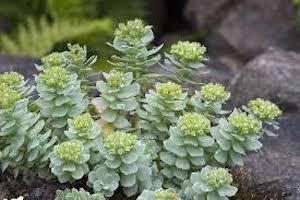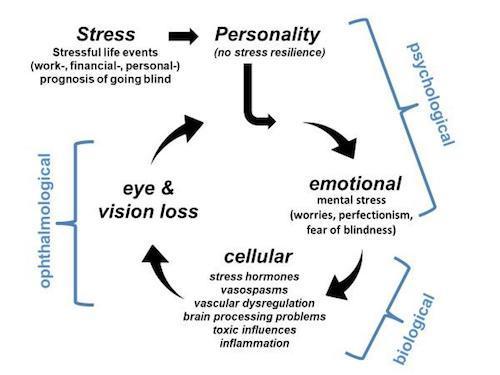Reduce Chronic Inflammation With A Daily Mindfulness Practice and 3 Adaptogens, Part 2

A daily mindfulness practice can reduce your chronic inflammation by reducing your stress. These days, stress is a problem and chronic inflammation will exacerbate any illness, especially COVID-19. Learn what to do.
This is Part 2 of a three-part series about how to reduce chronic inflammation. Go here for Part 1.
It might not be intuitive but a daily mindfulness practice and three specific adaptogens will go a long way to help you reduce chronic inflammation.
This is more important now than perhaps any time in your lifetime, especially if you have:
- A chronic illness, such as:
- heart disease
- hypertension (high blood pressure)
- lung disease
- diabetes
- Are over 5o years of age
- Are obese
These are the health issues that increase a person’s chance of getting very sick, or dying should a SARS-CoV-2 infection occur. That’s the virus that causes an assortment of COVID-19 illnesses.
And one common denominator behind aggravated COVID-19 is chronic (systemic) inflammation.
Chronic inflammation was a big enough issue prior to the pandemic, because it makes every chronic illness worse and is part of every chronic illness and, by the way, for most of us is an inevitable byproduct of aging.
There’s even a term for this — inflammaging.
Thus, it’s really important that you take proactive steps to reduce inflammation in your body, especially if you’re vulnerable to this virus. You want your “baseline” inflammation to be as low as possible should you get infected so that the inflammatory response your immune system naturally does to battle the infection does not get out of control, potentially producing the so-called “cytokine storm”.
So, let’s take some steps to reduce your chronic inflammation by:
- Doing a daily mindfulness practice, and
- Taking three adaptogens.
Before I delve into a daily mindfulness practice and the adaptogens, let’s quickly get a sense of the relationship between stress and chronic inflammation.
The Relationship Between Stress and Chronic Inflammation
The cause and effect dynamic between a daily mindfulness practice and chronic inflammation has to do with stress, and what stress does to your biology.
When you’re stressed, your body sets off a cascade of physical responses that affect your immune function, hormones, cognitive function system, and your circadian rhythm.
Our focus is on how stress impacts your immune system.
Way back in 1991, an experiment was conducted on 400 people to test the impact stress might have on contracting five different respiratory viruses. The researchers found that higher levels of stress were highly associated with more infections. Even if subjects were previously exposed to the virus, and had specific antibodies against the virus, the incidence of infections were positively associated with increased stress.
Psychological stress disrupts immune regulation and is specifically associated with increased pro-inflammatory cytokines. 1 In mice, acute stress increases Interleukin 1 beta, a cytokine protein that helps find infections, but can get out of control and thereby increase inflammation. 2
Indeed, stress chemistry is inherently inflammatory. Stress elevates cortisol and cortisol leads to widespread inflammation.
There are plenty of reasons to be stressed during this pandemic. Many of us fear that we’ll get the virus and that it will ruin our health. Our personal finances have taken a hit. And the future is uncertain. When health and livelihood are under threat, it’s natural to be stressed.
Although stress is a natural response to what most of us are experiencing during this pandemic, we can rely on two interventions to reduce stress, and thereby reduce chronic inflammation.
So, if you feel stressed, be proactive — develop your own daily mindfulness practice, and take three adaptogens: red ginseng, ashwagandha and rhodiola.
First, up — your daily mindfulness practice.
Click here for more resources about stress and inflammation
Your Daily Mindfulness Practice To Reduce Stress and Inflammation
 Credit: Doug Neil
Credit: Doug Neil
Let’s get into our heads.
What messages do you repeat to yourself every day?
Are they negative or positive?
To get a handle on your stress level, you must first be mindful of how you communicate to yourself. Are your thoughts fear-based, anxious, negative… do they convey a feeling of being overwhelmed?
Perhaps you’re not even aware of what proportion of your thoughts are based in negativity because you’re not paying attention — you’re not being mindful.
To put the brakes on stress, you must first be aware of how you’re getting stressed.
Various mindfulness techniques such as meditation, breathing exercises, guided imagery reduce stress. Such mindfulness techniques can reduce the excess hyperinflammatory cytokine production that makes COVID-19 so damaging.
Mindfulness may also reduce C-reactive protein, as mentioned, a well-known marker of inflammation and tissue damage. 3
I encourage you to adopt a daily mindfulness practice. What I mean by this is to become mindful of what runs your stress.
Calming activities can include creative pursuits, relaxing music, a walk in nature.
Mindfulness practices can include breath work and meditation.
Some people in the military use breath work to reduce the anxiety produced by warfare. This is what I call 4 by 4 by 4. It refers to a slow inhale of breath for 4 seconds, holding it for 4 seconds and then exhaling for 4 seconds. I find that doing this breathing through the nose is the most relaxing.
[Read about 4x4x4: Create Your Day In 5 Minutes.]
Be aware of how you’re breathing. Let the inhale fill up both your chest and belly. Basically, everything from your neck down to your groin should expand with each breath in and contract with each breath out.
While doing this breath technique, you may find that visualizing something relaxing or repeating a meaningful mantra can enhance the experience. One effective image is to breathe in what you want in life and breath out what you don’t. You can visualize it as a word, symbol or the actual thing wanted or unwanted.
If you’d like to go deeper into your own head, consider doing some meditation. This can be as simple as listening to brain synchronizing tones with headphones. These are available by the hundreds on Youtube.
Here are three to review:
- Detachment from Overthinking & Stress
- Let Go of Fear, Overthinking & Worries
- Release Inner Conflict & Struggle
Experiment with this. Discover what daily mindfulness practice what best works for you. (Tip: It’s the one you’ll do regularly.)
[Read: Meditate Like A Monk In 20 Minutes.]
And now to the three stress-relieving adaptogens.
3 Adaptogens To Reduce Stress and Chronic Inflammation
[Click on images for more info.]
Adaptogens are natural substances, typically herbs, that work as stress response modifiers. They act to reduce the stress response and return systems back to “normal”.
Three adaptogens that can help you reduce your stress and chronic inflammation are red ginseng, ashwagandha and rhodiola.
(1) Red Ginseng 
Red ginseng is made from the root of Korean ginseng, which is the same plant as Chinese ginseng, but is cultivated in different regions. The root of Korean ginseng is steamed and dried in heat or sunlight to make Red ginseng.
Chinese and Korean ginseng are among the most popular herbal remedies across the world. They are both generally regarded to be more potent than Siberian ginseng, and are probably better for someone who has experienced a great deal of stress, or is recovering from a long-standing illness.
Several studies indicate that they delay the onset of and reduce the severity of the “alarm phase” of the body’s short- and long-term response to stress. This is referring to the fight or flight response.
Red ginseng increases the release of interferon, which is a key component of anti-viral immunity. Red ginseng also reduces symptoms of influenza from H1N1 virus – a different virus than SARS-CoV-2, but perhaps red ginseng can have a similar effect.
Red ginseng has anti-inflammatory actions in various inflammatory conditions ranging from asthma to autoimmune diseases to colitis, which is inflammation of the colon or the large intestine.
In preclinical studies, red ginseng has been shown to specifically decrease various inflammatory cytokines including Interleukin-1 beta, yet another cytokine protein. This cytokine is involved in the inflammatory response to SARS-CoV-2.
(2) Ashwagandha 
Ashwagandha is an evergreen herb that grows in India, the Middle East, and parts of Africa. Its roots and orange-red fruit have been used for hundreds of years for medicinal purposes.
Ashwagnadha has been called the king of Ayurvedic herbs. Ayurveda is a branch of medicine originating from India. This herb is revered because it seems to confer many health benefits. It may, for instance modestly enhance strength performance, improve glucose metabolism, and increase testosterone levels. [4]
But our interest in ashwagandha is for its potent anti-stress effects in the context of chronic stress and anxiety disorders. And it seems to do just that.
A study on patients exhibiting chronic stress showed that taking two capsules per day of 300 mg of high-concentration full-spectrum extract from the root of the Ashwagandha plant for 60 days brought down their cortisol levels by 28%.
Rhodiola 
Rhodiola is the last adaptogen for you to consider as a stress and chronic inflammation reducer. It’s an herb that grows in the cold, mountainous regions of Europe and Asia. Like with ginseng, the root of the herb is used.
Rhodiola appears to be able to significantly reduce the fatigue and ‘burnout’ that come from stress and anxiety. Numerous trials suggest meaningful effects, particularly in people with stress and anxiety issues. [5]
Click here for more refrences about adaptogens
Panossian A, Wikman G. Effects of Adaptogens on the Central Nervous System and the Molecular Mechanisms Associated with Their Stress-Protective Activity. Pharmaceuticals (Basel). 2010 Jan 19;3(1):188-224.
Liao LY, He YF, Li L, Meng H, Dong YM, Yi F, Xiao PG. A preliminary review of studies on adaptogens: comparison of their bioactivity in TCM with that of ginseng-like herbs used worldwide. Chin Med. 2018 Nov 16;13:57.
Panossian A, Hambardzumyan M, Hovhanissyan A, Wikman G. The adaptogens rhodiola and schizandra modify the response to immobilization stress in rabbits by suppressing the increase of phosphorylated stress-activated protein kinase, nitric oxide and cortisol. Drug Target Insights. 2007;2:39-54.
Panossian A, Wikman. Evidence-based efficacy of adaptogens in fatigue, and molecular mechanisms related to their stress-protective activity. Curr Clin Pharmacol. 2009 Sep;4(3):198-219.
Salve J, Pate S, Debnath K, Langade D. Adaptogenic and Anxiolytic Effects of Ashwagandha Root Extract in Healthy Adults: A Double-blind, Randomized, Placebo-controlled Clinical Study. Cureus. 2019 Dec 25;11(12):e6466.
Your Takeaway
Remember these three points:
- The coronavirus pandemic we’re now living in is an anxiety promoting stress agitator. Unrelenting stress upregulates chronic inflammation, which can make you more vulnerable to severe COVID-19 illnesses, especially if you already struggle with health issues, or are in the second half of your lifespan.
- A daily mindfulness practice can make you more aware of what ignites your stress — the underlying conditions — and can serve to calm you down. This is a “practice” because it must be practiced in order to yield benefits.
- Three adaptogens that can support the ability of your daily mindfulness practice to reduce stress, and thereby chronic inflammation, are red ginseng, ashwagandha and rhodiola.
Last Updated on July 7, 2023 by Joe Garma







